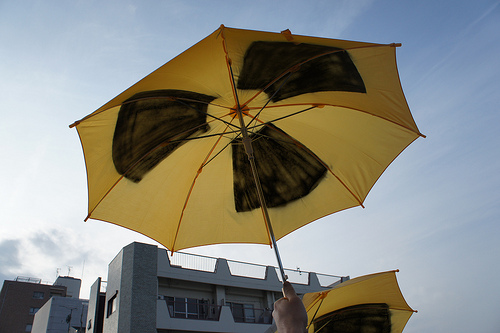
Because they raise the costs of war to almost unbearable levels, neo-realists have argued that nuclear weapons exert a stabilizing influence on the conduct of international relations. In practice, however, nuclear proliferation remains one of the major threats to international peace and security today. Specifically in the Middle East, one of the most heavily militarized regions in the world, the fear of a nuclear arms race has persisted for quite some time. Only last week, the United States and other Western governments have stepped up the pressure on Iran after the latest IAEA report on its allegedly peaceful nuclear activities.
Although the UN Resolution on a nuclear- weapons- free zone in the Middle East was reinforced in 1995 by all the parties to the Nuclear Non-Proliferation Treaty (NPT), the initiative has been lying idle for many years, for a number of reasons. Behind the project of a weapons- of- mass- destruction- free zone (WMDFZ) is the argument that incentives to proliferate may emerge in regional or sub- regional contexts that require an indigenous, regional response rather than a global one. However, the creation of such a zone in the Middle East, following the Latin American-Caribbean or South Pacific model, seems rather ambitious considering the conflicting interests at stake in the region.
The 2010 NPT Review Conference’s decision to set 2012 as the year for an international meeting on the establishment of a nuclear-weapons-free zone in the Middle East is yet another attempt to bring the relevant parties to the table, and break the deadlock stemming from governments playing the ‘blame game.’ While Iran’s failure to live up to its NPT obligations is thought to pose the greatest threat to a practical solution, Arab suspicions about Western policy-making are widespread. Not only is the nuclear-armed West accused of applying a double standard, but of shielding Israel’s ambiguous nuclear policy, while imposing sanctions on states that legitimately exercise their treaty rights to pursue civilian nuclear energy. For what it’s worth, chances are slim that Israel will make any concessions when it comes to their national security.
For once, the challenge is not merely about reaching a consensus on the matter, but about overcoming what seems to be a classical prisoner’s dilemma in a region already characterized by enough distrust and outright hostility. Nevertheless, the momentum of the upcoming conference in 2012 should not be wasted, keeping in mind that it will require a joint effort by the entire international community to effectively tackle the problem. Convincing security guarantees and the accession of all states in the Middle East to the relevant UN treaties will be crucial to building trust. Furthermore, the current nuclear states will need to act on their responsibilities and credibly demonstrate that they are working towards substantial reductions in the numbers of their warheads. Holding on to arsenals for historical reasons or for future leverage sends the wrong signals to non-nuclear states.
Due to the very limited progress so far, an additional meeting initiated by the Arab Institute for Security Studies (ACSIS) was held in the Jordanian capital. The meeting concluded with the decision to establish an “Advisory Committee” in order to support the UN Secretary General and the appointed facilitator for the 2012 meeting. Initiatives such as the Amman Framework will be crucial in order to not lose track of the decisions that have been made in the past. The question remains, however, whether a nuclear weapon free zone can be established in the Middle East without a vital peace process in place or even significant agreements on conventional weapons. Clearly, the NPT alone will not suffice to overcome the obstacles posed.

